Maybe you are tired of the boring life in the city, and you want to explore beautiful nature, begin hiking? But you are short of experience, so there are some guides that will give you some essential hiking for beginners tips.
Hiking Tips for Beginner #1: Hiking with a experienced partner
For most hiking beginners, we didn't advise them to go hiking solo, it is dangerous for a hiking beginner with little experience hike to an unknown place, so hiking with an experienced partner for company and safety and you can learn more hiking knowledge from them.
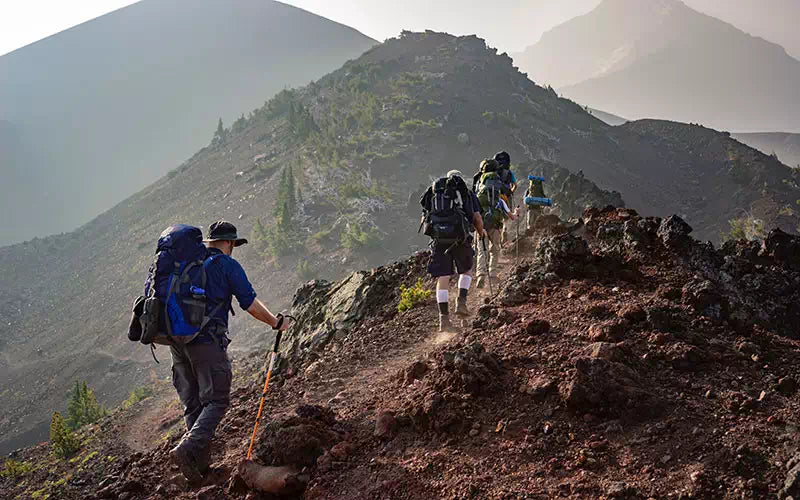
Hiking Tips for Beginner #2: Tell someone your hiking plans before heading off
This is a important tips that could save your life at the crucial moment. You'd better tell someone(your famaily or good friend) where and when you’ll be hiking, you can often update your social media such as Instagram, Facebook or Twitter. Let people know where you are going, if something bad happens, this will increase your chances of being found dramatically.
Hiking Tips for Beginner #3: Pick a hike plan for beginners
Before hiking, you need to plan where you are going, how to get there, and how to get home safely. As a hiking beginner, don't pick a hike that’s either too long or has too much climb. And you'd better make a training plan in advance; do an extra mile or two each week and build up to your target distance.
Don't get lost, be sure to factor in distance, elevation, conditions and your time when choosing a hike. Knowing what to expect, where the turns are, and how long it should take you. Having basic navigation skills will really help you out on the trail, you can using apps such as Google GPS, but sometimes electronic equipment may be affected by the signal or the equipment may be damaged and cannot work, so physical maps and a compass are very important, you need to learn how to use them before hiking.
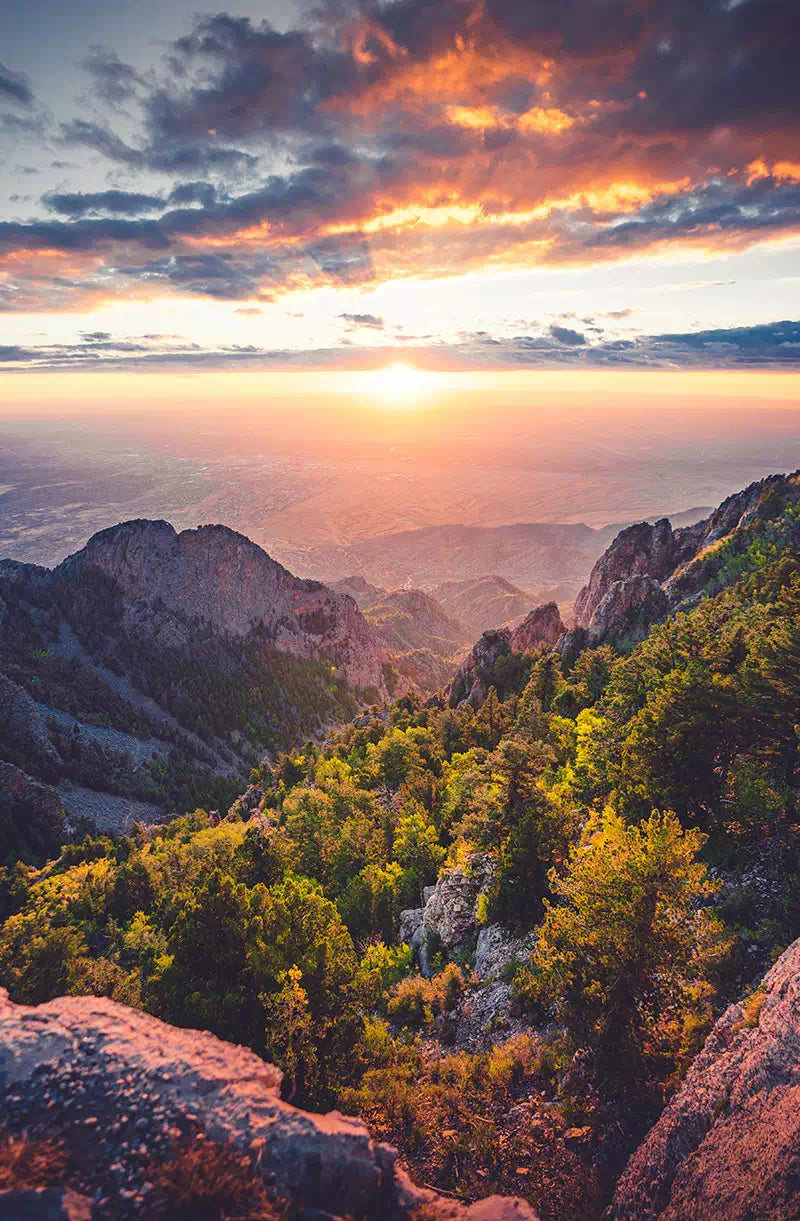
Hiking Tips for Beginner #4: Pick hiking essentials for beginners
Comfort and safe are key. Different people also choose different gear for hiking, but the same point is to find what you feel comfortable exercising in and making sure you are safe in the outdoors. Here we share the hiking gear for beginners from one experienced hiker and why they pick them?
Hiking gear for beginners #1: Hiking shoes
A good pair of sneakers or trail runners are usually your best bet. Hiking shoes are very person-specific. When hiking I usually opt for a waterproof boot with ankle support, but something that isn’t too heavy.
Hiking gear for beginners #2: Hiking socks
Don’t overlook the importance of having socks that fit correctly and are comfortable to wear for a long time. I also choose the most durable, least smelly and most comfortable socks for hiking, such as Icebreaker.
Hiking gear for beginners #3: Hiking Clothing:
- Hiking bottoms: what you wear for bottoms is a personal preference. You can choose bottoms to keep your legs covered to protect you from sunburn, ticks, mosquitoes, and scratches. Another option is wearing convertible pants that you can easily switch to shorts.
- For hiking shirts, you can either go with short sleeve, long sleeve, or tank options. For cooler hikes or those where I am worried about sunburn, I will usually opt for long sleeves.
Hiking gear for beginners #4: Hat
I recommend you wear some kind of hat on the trail to protect you from the sun, especially during the warmer months.
Hiking gear for beginners #5: Sunglasses:
Having sunglasses makes hiking a lot more enjoyable on a sunny day (or when it’s overcast with a lot of glare). Plus, polarized sunglasses will cut the reflections and glare on those beautiful lakes you are looking at (bonus!).
Hiking gear for beginners #6: Trekking poles:
Not everyone enjoys using trekking poles, but I personally find them helpful for hikes with considerable elevation gain, or if the terrain is unsteady.
Hiking gear for beginners #7: Hiking backpack
A backpack for hiking is very important because hiking needs the 10 essentials: navigation, sun protection, insulation, headlamp, first aid supplies, fire starter, shelter, repair kit, food, and water. You need a backpack to carry them. I would recommend you use a backpack that you already have at home or invest in one that is made for hiking. Key features include adjustable straps, waist belt/strap, check strap, waterproof, durable and somewhere to easily access your water bottle or water bladder. I swear by my LukeCase canvas hiking rucksack, you can also choose other backpacks such these men's leather backpacks.
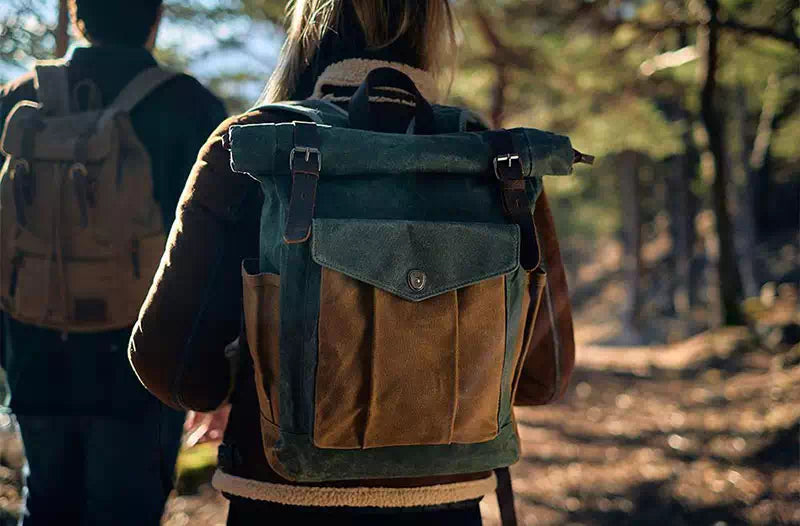
Hiking gear for beginners #8: Rain and wind protection:
You just never know when the weather will turn! You can make the call on this depending on what kind of climate you live in. So you need to prepare a rain jacket and wind jacket.
Hiking gear for beginners #9: Water bottle:
A water bottle or hydration bladder is an absolute must when hiking! Dehydration can be a killer so it’s not something to skimp on.
Hiking gear for beginners #10: Navigation:
A great starting place is purchasing or printing a topographic map for the area you will be hiking (keep it inside a protective/waterproof sleeve). It’s also a great idea to bring along a compass and have some basic skills to use it. In addition to this, it’s a good idea to save some offline maps to your phone.
Hiking gear for beginners #11: First AID:
I typically take a small and lightweight first aid kit on hiking trips. You just never know when it will come in handy for yourself or your hiking partner.
Hiking gear for beginners #12: Bug spray:
Depending on where you are hiking, it’s probably a good idea to take some bug spray with you.
Extra hiking gear for beginners' items:
Such as a headlamp, an emergency blanket/bivy, means to start a fire, a knife or multi-tool, and a whistle.
Hiking Tips for Beginner #5: Conserve your energy
In hiking, steady is better than quick. you need to conserve your energy, especially on a long hike. You never know what situation you’ll have to use your energy on later. Hiking at a comfortable pace is also a great way just to soak it all in. Enjoy the outdoors, enjoy the fresh air, keep your eyes open for wildlife, and have fun.
Hiking Tips for Beginner #6: Understand Your Map
More and more people rely on smartphones for navigation, it is very easy and accurate, so they maybe can't understand printable topo map. But electronic navigation equipment sometimes does not work properly, so a combination of electronic navigation and paper is a good route for hiking beginners. Before your hiking, you need to print out the hiking guide and map. Read over the guide, study the map, and have a good idea of what to expect.
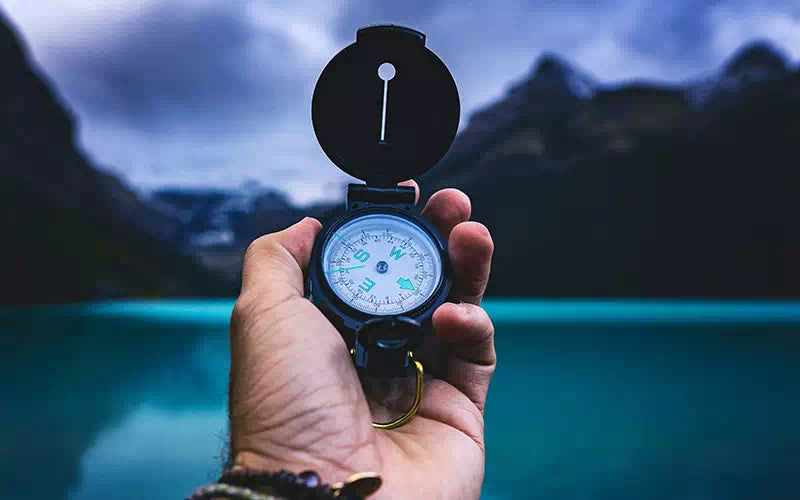
Hiking Tips for Beginner #7: Choose a right time
The right time and weather are very important for hiking beginners. I recommend choosing a cool day, the weather won't get too hot and rainy, generally spring and autumn are best, I like hiking in the spring because I the warm spring breeze and I can admire the spring flowers and the growth of everything. I highly recommend that you start your hike as early as possible, you should start your hike in the early morning because you can breathe the fresh air; and the later you leave it, the more crowds there will be. It might be harder to park, etc.

Hiking Tips for Beginner #8: Watch Your Feet
You need to watch your feet during a hike, avoid twisting your ankle, slipping on a rock, tripping on a root, or worse, stepping on some poisonous wildlife.
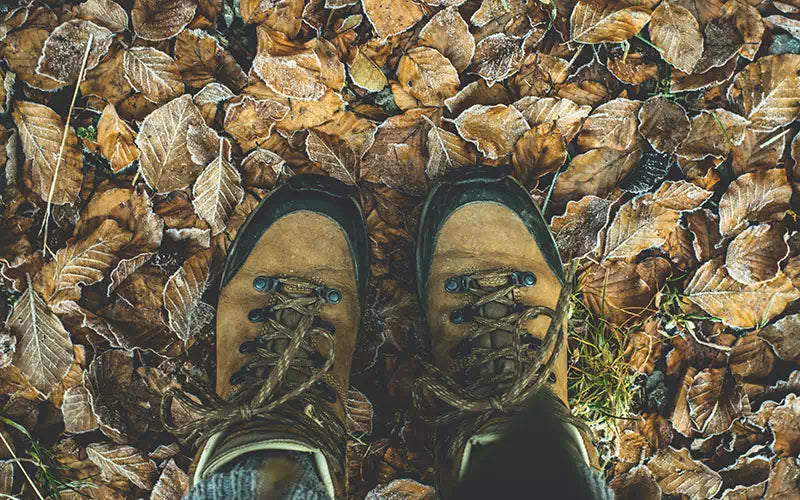
End
They are some essential hiking tips for beginners that from an experienced hiker, it's enough for hiking beginners, and if you have any questions or advice for hiking, please share with us.









